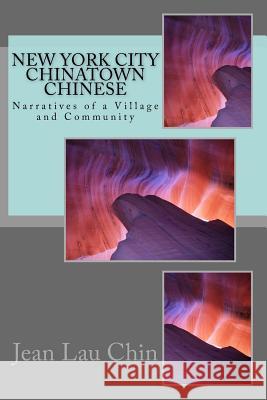New York City Chinatown Chinese: Narratives of a Village and Community Volume II » książka
New York City Chinatown Chinese: Narratives of a Village and Community Volume II
ISBN-13: 9781544714042 / Angielski / Miękka / 2017 / 428 str.
The story of the Toisanese and Cantonese Chinese, especially of those from New York City, are largely missing from our annals of history. The accomplishments of these peasant farmers and their offspring from southern China were extraordinary amidst enormous struggles. Known as the Jook Sing generation, their children went on to become responsible U.S. citizens and educated professionals. Many enter fields where no Chinese had gone before. They created, within New York City's Chinatown, a village and a community with its cobweb of family and social relationships. It was safe, supportive, and they belonged. This book is a collection of narratives about ordinary people who made extraordinary strides. It is a psychosocial account of narratives of the Toisanese and Cantonese Chinese growing up during the 1940s-1960s in the US-told for the next generation lest they be forgotten. While the Garden of Eden lies in the East for Westerners, the Jade Mountain of the Queen Mother, Hsi Wang Mu, lies in the West for Easterners. These pioneering Chinese made their Journey to the West. What made for their resilience and bonds that enabled them to succeed? Isn't it ironic that they came to America for economic opportunities, only to be mistrusted for their political allegiances? They were recruited for jobs that White Americans did not want; yet they became an economic threat because they took away American jobs. Chinatown was viewed as a secretive and isolated community; yet the anti-Chinese laws blatantly discriminated and excluded them from housing, immigration, and access to mainstream resources. Isn't it ironic how many Chinese Americans served in the military, yet faced more backlash from their American comrades than from the enemy? They continued to be viewed as foreigners despite sacrificing their lives for the US. But most of all, this story about the Cantonese and Toisanese Chinese is a story about the plight of all immigrants. Volume 2 is a collection of stories for the New York City Chinatown Oral History Project, www.ceoservices.wix.com/nycchinatownoralhist. The project celebrates the lives of ordinary Chinese immigrants and Chinese American citizens, who shared similar experiences, and together made extraordinary strides as a community-forming bonds that have lasted a lifetime. Since the biennial NYC Chinatown Reunions in Las Vegas began in 2000, many felt the need to document these stories of a forgotten generation in the annals of U.S. history. Few Toisanese now immigrate to America. Yet, they were responsible for the initial introduction of cheap Chinese food to the American public-Chow Mein, Chop Suey, Wonton Soup and Egg rolls. What a difference today's more gourmet Cantonese cuisine is to the American palate While Volume I was foundational, Volume II builds on and expands these narratives of resilience and community support networks. Over 300 individuals have participated to this project. This volume includes stories collected between 2013 and 2016 from individual interviews, recorded project events, submitted stories, and taped conversations. All participants have given permission for their stories to be used. Common themes in Volume II include that of Chinatown as a village, the bonds among Chinese families, the sacrifice made by our pioneering parents, Chinese American identity, and how -we did it in one generation-. Our Journey to the West marks the end of an era and how a unique Chinese American culture emerged. The challenges and resilience of this group in dealing with mobility, access, discrimination, and the stigma and pride of their Toisanese ways are inspiring. Most lived in poverty amidst a backdrop of cultural and community riches. They Lived the American Dream-their story is of accomplishments and successes, notable firsts and atypical paths as descendants of peasant farmers from Toisan to become productive Chinese American citizens. And We did it Our Way
Zawartość książki może nie spełniać oczekiwań – reklamacje nie obejmują treści, która mogła nie być redakcyjnie ani merytorycznie opracowana.











